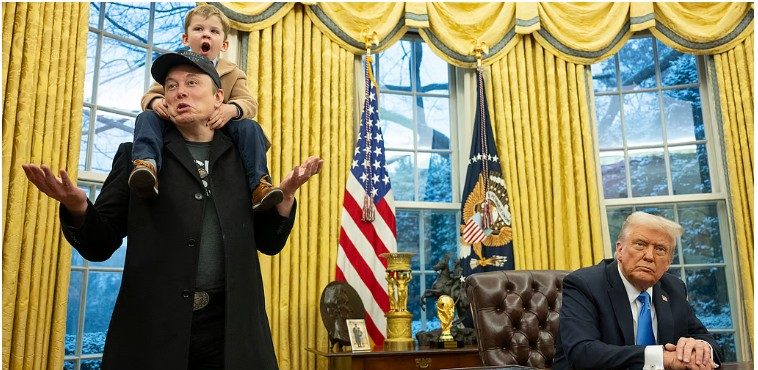
WASHINGTON, D.C. – – The U.S. Department of Agriculture has frozen some funding for ranchers and farmers as it goes through a sweeping review, despite assurances, from the Trump administration that programs helping ranchers and farmers would not be affected in the government overhaul.
The impact has been immediate and wide-ranging, from cash assistance for ranchers to fix cattle watering systems to help for corn growers wanting to plant cover crops that curb wind erosion.
Rob Larew, president of the National Farmers Union, told the Senate Agriculture Committee on Wednesday that the group was hearing from farmers and ranchers across the country who were not receiving expected payments from USDA conservation programs.

“Having USDA delayed with a lot of uncertainty about whether or not it will actually come through is adding to that economic pressure in the countryside,” he said.
Programs aimed at conservation, rural economic development and small ranch and farm grants have been halted as the administration conducts a review of 409 USDA programs. Some of these programs were supported by funding from the 2022 Inflation Reduction Act, which earmarked $19.5 billion over 10 years for agricultural sustainability initiatives.
According to a Reuters report, ranchers and farmers who signed contracts with the USDA’s Natural Resources Conservation Service (NRCS) have been informed that their payments are now on hold.
Why the freeze?
- The USDA is conducting a review of its programs
- The freeze affects programs funded by the 2022 Inflation Reduction Act (IRA), which was signed by President Joe Biden
- The freeze also affects programs that are tied to Diversity, Equity, and Inclusion (DEI) initiatives
- What programs are affected?
- The Environmental Quality Incentives Program, which helps ranchers and farmers with natural resources
- The Rural Energy for America Program, which helps ranchers and farmers improve their infrastructure
- The Climate-Smart Commodities program, which involves thousands of farms
What does this mean for ranchers and farmers?
- Ranchers and farmers who signed contracts with the USDA are on the hook for costs they paid up front
- Ranchers and farmers face economic uncertainty and financial distress
- What can ranchers and farmers do?
- Explore available loan options using the Farm Loan Discovery Tool on farmers.gov
- Contact their local USDA Service Center
- Call the FSA call center at (877) 508-8364
The White House said its January 27 proposal to freeze federal loans and grants would not affect programs for ranchers and farmers. The White House did not respond to a request for comment on Friday, Feb.7. While the Trump administration has not officially linked the USDA funding freeze to Project 2025, some critica of the president believe the move aligns with broader conservative policy goals of reducing government intervention in agriculture that is a part of Project 2025.
The freeze adds more economic uncertainty for farmers already struggling after several consecutive years of incomes dragged down by low crop prices and the former Trump administration’s trade wars and tariffs. While currently on a market high, ranchers have suffered staggering losses over the last five years due to natural disasters, drought, and higher input costs.
Missouri cattle producer Skylar Holden posted a series of videos on TikTok this week, saying he had signed a contract with USDA’s Natural Resources Conservation Service for $240,000 for improved water lines, fences and a well.
But USDA officials called him recently to tell him his contract with NRCS’s Environmental Quality Incentives Program, or EQIP, was frozen, he said. It’s not clear when the funds will be released, Holden said in his video.
“I’ve already done a bunch of the work, already paid for the material and the labor, so I’m out all that cost,” Holden said in one video, adding, “We are possibly going to lose our farm if NRCS doesn’t hold up their contract with us.”
The program aims to help ranchers and farmers maintain or improve production while conserving natural resources.
A USDA spokesperson said all federal agencies have been asked for such program reviews. “The Department of Agriculture will be happy to provide a response to interested parties once Brooke Rollins is confirmed,” and has analyzed them.
Rollins, Trump’s pick to run the farm agency, was advanced by the Senate Agriculture Committee this week but has not yet received a full Senate confirmation vote.
The U.S. Office of Management and Budget has asked USDA for information on 409 programs, according to an OMB document reviewed by Reuters, including the names of political appointees that oversee each program and any funding obligations the programs have through March 15.
USDA’s funding pause extended to programs beyond those supported through Biden’s signature climate law, according to a letter sent to USDA on by three Democratic Party lawmakers.
“Pulling the rug out from these recipients runs counter to the mission of the USDA and will quickly and significantly cripple economic development in rural America,” the letter said.
One program targeted in the funding pause was the Partnership for Climate-Smart Commodities, where USDA said it is investing $3.1 billion,in 141 projects to help ranchers and farmers enroll in conservation programs.
Trump’s gutting the federal government through the newly created Department of Government Efficiency (DOGE) headed by billionaire Elon Musk has also resulted in leaving U.S. businesses that sold goods and services to USAID in limbo, including American farmers growing rice, wheat and soybeans purchased as food aid.


